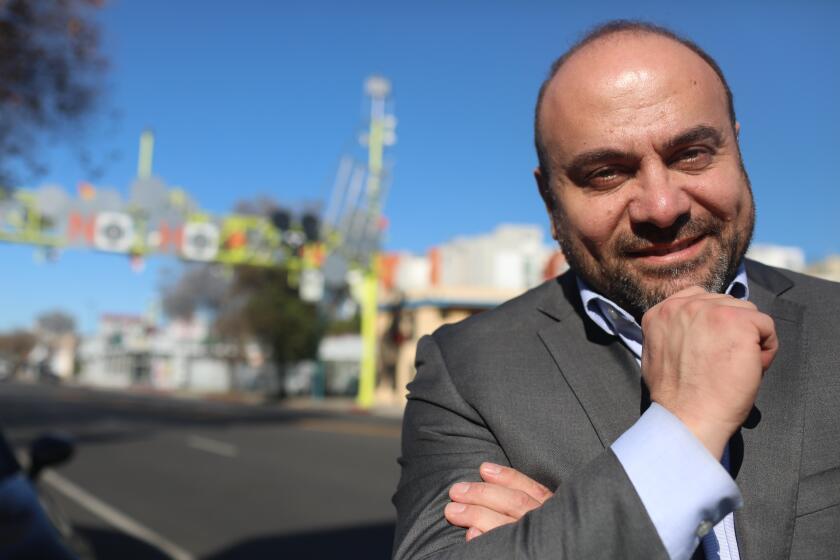Editorial: A California solution for a Medicaid quirk
The 2010 federal healthcare reform law required virtually all adult Americans to carry insurance, starting this year. And to help make policies affordable, it offered subsidies to lower-income households while expanding the Medicaid insurance program to more of the poorest residents. But there’s a key difference between those two groups: Only those in the Medicaid program may find their estates billed after they die to pay back some of the aid.
The Obama administration recognized how unfair this was, and it urged states to rein in their efforts to recover from the estates of Medicaid enrollees. The California Legislature responded by passing a bill (SB 1124) that would stop Medi-Cal, the state’s version of Medicaid, from trying to collect repayment for routine medical care and insurance premiums. The measure now awaits action by Gov. Jerry Brown, whose Department of Finance opposes the bill because it would cost Medi-Cal an estimated $30 million a year. Although those funds are important to Medi-Cal, Brown should sign the bill.
Because Medicaid was meant for people with few resources, federal law requires states to seek from the estates of those who did have assets reimbursement for nursing home, in-home and community-based care. California law goes further, requiring Medi-Cal to seek reimbursement for the cost of any care delivered to an enrollee age 55 or older, provided that the enrollee did not have a surviving spouse or minor or disabled children. The law allows heirs to obtain an exemption from the recovery if they can show it would cause them substantial hardship, such as forcing them to remain on public benefits.
In theory, that’s not a bad way to limit Medi-Cal’s benefits to the poorest Californians. In practice, though, the recoveries are unfairly applied. More sophisticated families evade recovery by shifting assets to relatives of Medi-Cal enrollees before they die. And those with slightly more income can buy subsidized insurance at extremely low cost through Covered California, the state’s insurance marketplace, without having to repay the subsidies after they die.
Most troubling, the new requirement to obtain coverage is prompting millions of Californians to sign up for Medi-Cal, where they are put in Medi-Cal’s version of an HMO. Only after they enrolled are they told that, if they are 55 or older, the state will seek to recover the value of the coverage from their estates. They could be in perfect health, receiving no medical care at all, but still be running up a bill that their estate will have to pay. SB 1124 strikes the right balance, barring the state from recovering routine costs while still having Medi-Cal seek reimbursement for long-term care.
Follow the Opinion section on Twitter @latimesopinion
More to Read
A cure for the common opinion
Get thought-provoking perspectives with our weekly newsletter.
You may occasionally receive promotional content from the Los Angeles Times.










